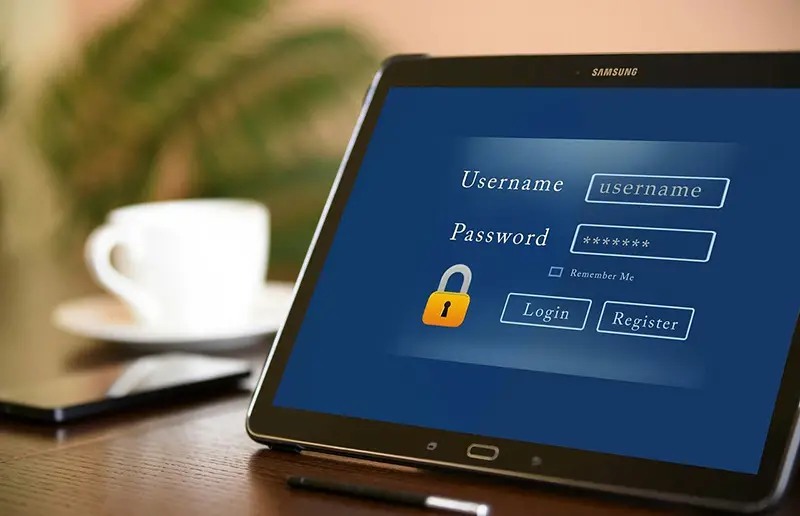Click here to get this post in PDF
Cyber security is something that your business needs to think strongly about. In our modern world with lots of technology and much of our transactions happening online, it is up to your business to keep all that data safe and secure.
No matter what kind of business you run, there are a number of cyber security risks to consider. Being prepared for these and knowing how you can protect yourself against these will help. Some of the biggest cyber security risks for your business include.
1. The People on Your Network
The biggest link for any business is the employees for the business. Human error can often account for many of the data leaks and other issues that you may phase.
You could have the best security system in the world, but if one of your employees falls for a phishing email, then malware is introduced to the system and the whole thing is compromised. While your employees are important and valuable, they can be the biggest liability too.
Finding an effective way to tackle this problem can be difficult. You need employees to help run the business so you can’t just get rid of them all. A key step to take is educating your employees on major cyber risks and the proper steps you expect them to take while at work.
Decide what security measures you want to use. You may have a seminar on not answering phishing emails and not using work email for personal needs. There may be certain rules in place if an employee works remotely. Strong password requirements can help too.
Be aware of the BYOD or Bring Your Own Device. This is something that many businesses are embracing to allow their employees to have more freedom and use the same device when working during travel or at home.
This may seem beneficial, but it also presents some security risks. Your employees are not going to have the same security as a corporate device, leaving your system open to hackers and other issues. If you allow this to happen, then employee education has to be in place and strict security protocols need to be used on each device to prevent issues on the network.
2. Missing Out on Strong Passwords
Any account that is associated with your business must be secured through a strong password. If possible, require two-factor authentication to add more security too. Everyone in the company must pick strong passwords to help them keep data and other information safe.
There are a few rules that you should implement to help ensure strong passwords are used all the time. These include:
Have complex passwords. Require all employees to have a strong combination with upper and lowercase letters, numbers, and special symbols. Longer passwords are good too.
Require two-factor authentication. This makes it harder for it to get hacked.
Have employees change their passwords every 60 days or so to make it hard to track.
All employees must learn that they do not share their passwords with anyone else, even others who are working in the same company as them. The more people who know the password, the easier it is for someone to get onto the system.
3. Patch Management
Another thing to consider is keeping the software updated in your system. The importance of doing this was found in two major outbreaks including Petya and WannaCry. Both of these were spread because they were able to exploit a big vulnerability in the Windows operating system known as Eternal Blue.
This vulnerability allowed the malware to spread within a corporate network, even without a user interacting with it. This made the outbreak cause a lot more damage than many would imagine.
The problem was that this problem could have been solved. The patch for this vulnerability had been caught and released in March. The WannaCry outbreak happened in May. If big corporations had updated and gotten this patch in place, they would have been able to avoid the outbreak.
There are some issues that can come with this though. Updating the software in a company is not always straightforward and there may be worries that updating one part of the system will break down.
Your IT management team needs to balance the security of the system with issues of doing updates to make sure the system does not go down and ruin the network and slow down the work for the company.
4. Other Companies
You should always watch out for how other companies are handling some of their security as well. Your cybersecurity practices are important, but if a company you work closely with does not have good cybersecurity protocols in place, then this can leave you open and vulnerable.
Always check into the cybersecurity practices of any third party that you work with. One example of this is the Petya attack we talked about before. With this attack, an accounting software package got compromised and inserted Petya into corporate networks. A good cybersecurity plan with the help of your IT services will make a difference too.
Any company that used that software all of a sudden found itself under attack. This was the attack that led to the Target data breach too. It got so bad that it cost Target over $200 million to get fixed.
If you plan to work with third-party software within your business, check into their cybersecurity too. This will help you to keep hackers and malware out of the system to keep things safe.
Protecting Your Cyber Security
Everything that you do online will affect how safe data is within your business. From how your employees behave when they utilize your system to the security from other companies and the updates you do, any vulnerability can leave you open to an attack.
Recognizing these issues and taking caution to prevent them, or at least close them up as much as possible, will make a lot of difference.
You may also like: 4 Reasons To Improve Your Cyber Security



